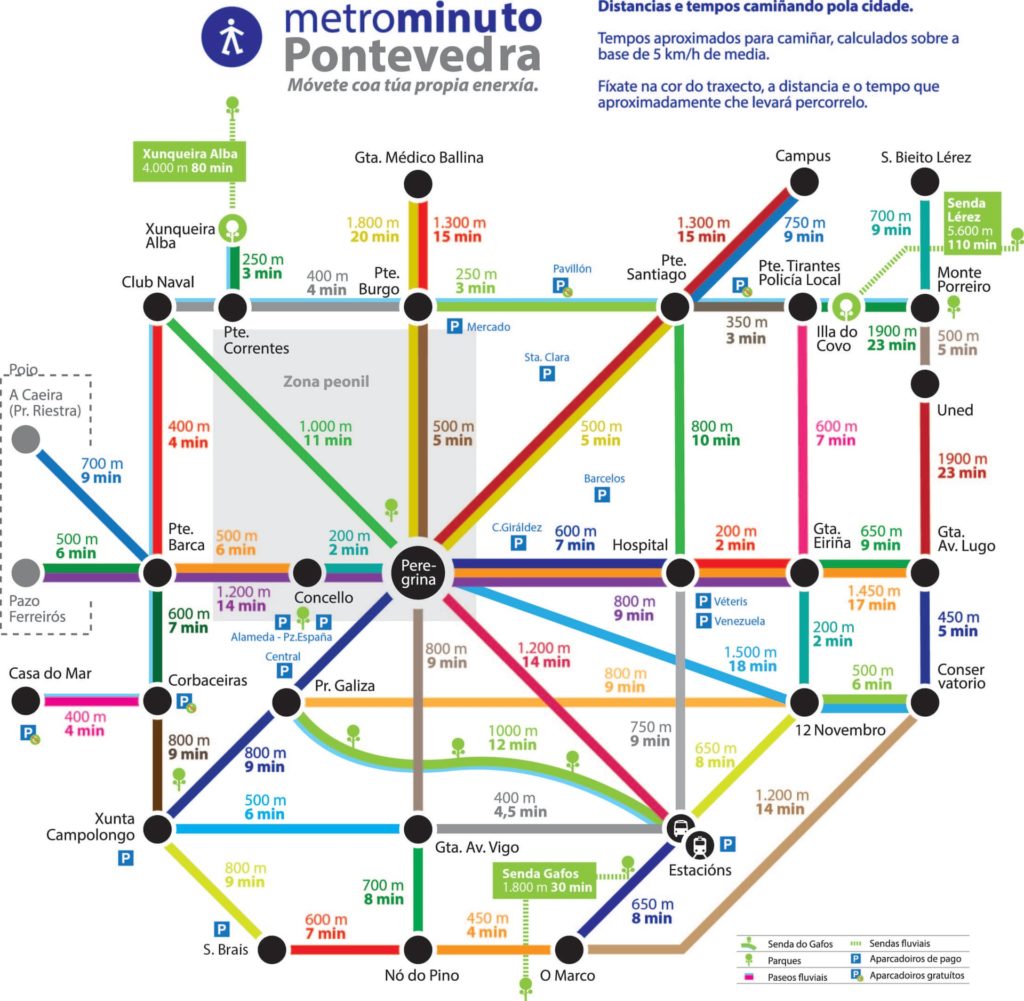Pontevedra is a city in the northwest of Spain. It has been internationally recognized for its efforts in promoting healthy life among its citizens. Others cities in the world copy its actions at urban planning to improve life quality by the process in which if an intervention works in one place, it is about to be successful in another one. But how has it been acknowledged towards sustainable mobility?
Miguel Anxo Fernández Lores has been its mayor since 1999. At the begging, he put his hands on his head as 14,000 cars passed along some streets while much less neighbors lived on them. He had in mind ending with this nonsense. Today, Pontevedra is one of the quiet cities in the noisy Spain.
In this time, he has transformed the city by following a simple and powerful idea: Owing a car does not give you the right to occupy the public space. This philosophy confronts to what has been the dominant model in cities: Throwing out children and senior citizens from streets because of cars. At the beginning pedestrianized all the medieval center (300,000 squared meters). This allowed natives and tourists enjoying so vast area. They realized people looking for a place to park caused the most congestion, thus stopped cars crossing the city and got rid of street parking. They incorporated other actions like extending the car-free zone from the old city to the 18th- century area, substituted traffic lights by roundabouts and traffic calming areas by reducing the speed limit to 30 km/h.
An interesting and copied idea was the launch of the Metrominuto. The Metrominuto is a map centered in the aesthetics of metros maps, which marks the pedestrian distances between the most important points of the city and the time it takes to travel them:

Thanks to this beneficial interventions nobody has died in car accident in the city since 2009, whereas 30 people died from 1996 to 2006. CO2 emissions reduced 70%. Almost three-quarters of car journeys are made on foot or by bike. Withholding planning permission for big shopping centers protected small business. The works were exclusively financed locally and received no aid from regional or central government.
To sump up, motivated leaders with the unique target of benefit society and a sustainable mobility vision is what cities need.